TMS Blogs
School Events
Professional Learning Week At The Millennium School, GNW: A Step Towards Teacher Development!
by admin January 16, 23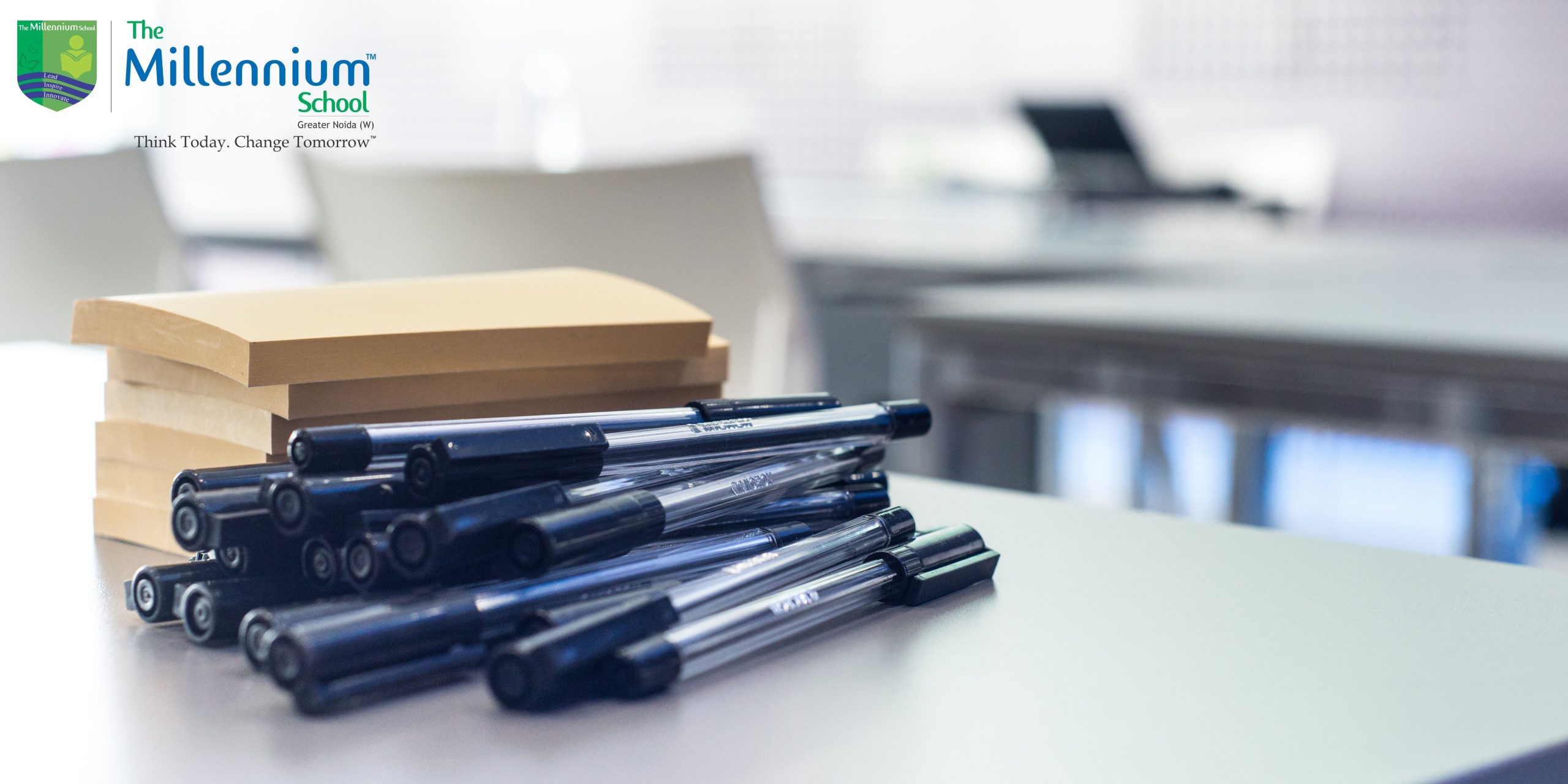
It is rightly said that “Education is a cycle of continuous learning without an end.”
Merely obtaining a degree in any field cannot be the end of learning for professionals. Just like doctors, scientists, or marketing experts, teachers too need to stay up-to-date with the latest research, technologies, and practises of the industry to encourage the best learning outcomes in students. Thus, consistent professional development of educators is important to expand their knowledge & skills, develop a growth mindset, and ensure their classroom management techniques & pedagogies are relevant to the current times or learning requirements of their students.
As one of the top schools in Greater Noida West, The Millennium School places great emphasis on the professional development of teachers throughout the school year. We believe that learning should occur in both informal and formal settings. Being invested in teacher training, the school conducts experts’ webinars, seminars, workshops, learning sessions, etc., at regular intervals. In addition to this, The Millennium School, Greater Noida West, undertakes various informal learning measures like encouraging peer-to-peer learning initiatives, teacher collaborations, feedback on teaching, research, etc., to help educators learn from each other, their seniors, and students, as well.
The on-campus ‘Professional Learning Week’ starting from December 26th to December 30th, 2022, was a step towards consolidating teachers’ learning and introducing them to the recent developments in the education industry. E.g., the NEP 2020, new modifications in the NCF, new assessments adopted by the CBSE, etc.
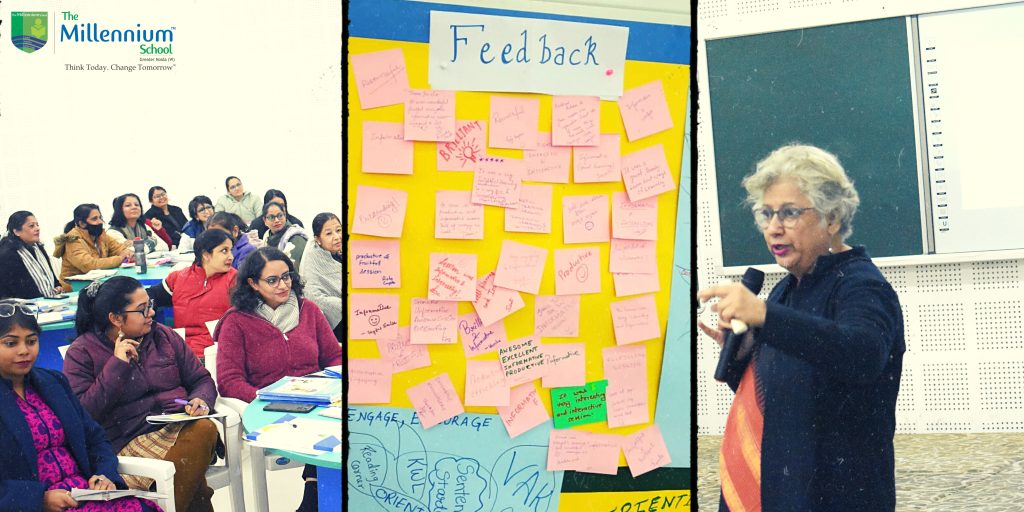
The professional learning week started with an inspirational session by Ms. Kalpana Kapoor (edupreneur, mentor, and leadership coach) on “Connecting The Dots: Exploring Linkages Between NEP and CBSE Initiatives.”
As an eminent educationist with vast experience in teacher training, Ms. Kapoor helped the educators at The Millennium School, Greater Noida West, understand the important teaching-learning elements mentioned in the new National Education Policy 2020 and how they could be implemented inside the classrooms. E.g., inclusive learning practices, competency-based learning methodologies, techniques to develop scientific temperament, etc. The idea was to help educators adopt and successfully implement the progressive points of the NEP in the class.
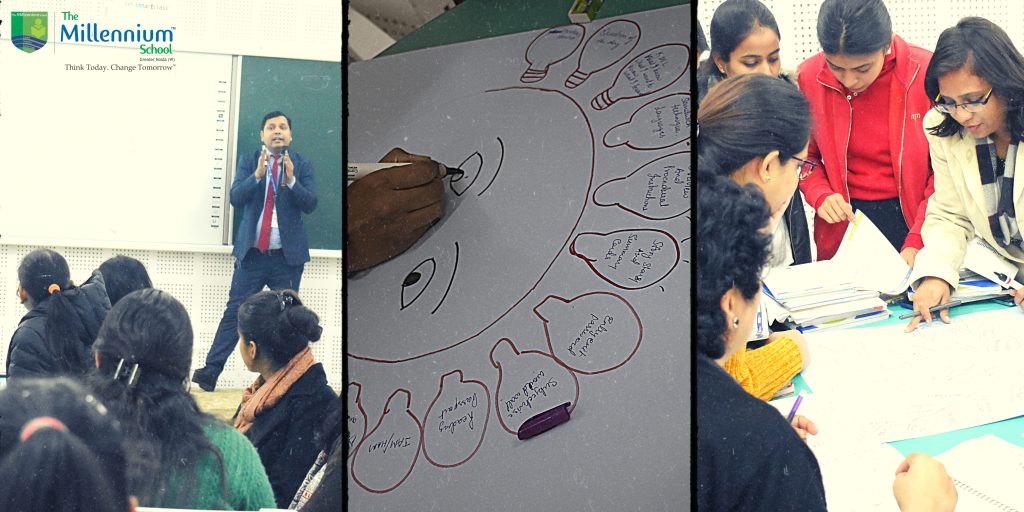
The second day of the Professional Learning Week saw a riveting and inspirational session by Mr. Balram Khurana (regional manager at EDAC), who led a discussion on “Strategies For Encouraging Experiential Learning Inside Classrooms”.
The interactive workshop included hands-on teaching practises and learning strategies that engaged students’ five senses. The emphasis was laid on sensory and mindful learning so that students could retain the concepts and get internally motivated to explore further. Mr. Khurana discussed the importance of creating word walls, entry/exit passwords, and games to know more about students, etc., which would make learning more fun and interesting for both teachers and students.
The educators thoroughly enjoyed the session and participated in some of the learning activities to experience them from the students’ viewpoints. The training ended with beautiful illustrations summarising the key takeaways from the facilitators.
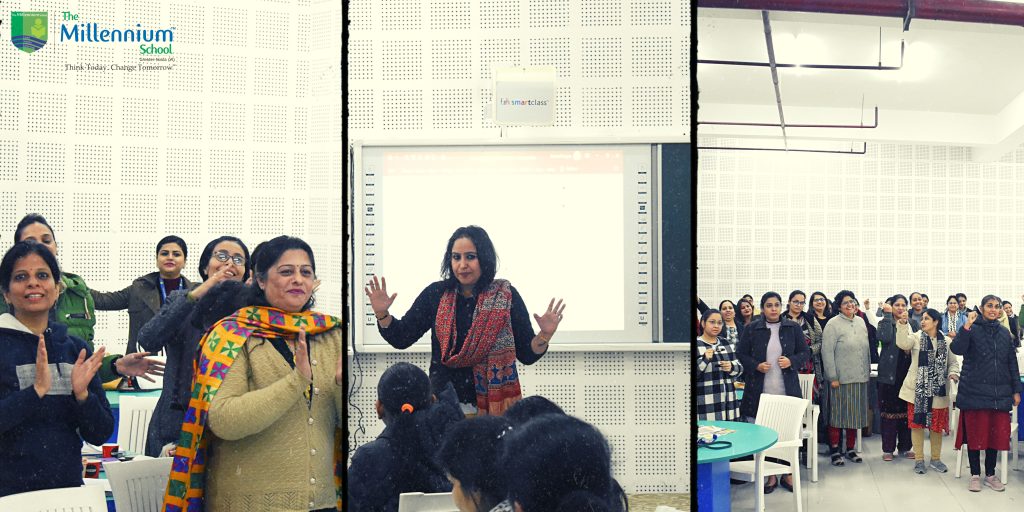
Dr. Nishi Phogat (academic consultant and CBSE teacher facilitator) led an energetic and interactive session on “NCF 2022: How Does It Affect Teaching & Learning In The Pre-Primary Wing” on the third day.
The hands-on learning session focused on integrating practical activities (the essence of the National Curriculum Framework) from all domains (gross and fine motor, kinaesthetic, audio-visual, socio-emotional, etc.) in the classroom such that no child in the early years is left behind. The idea was to highlight the purpose of each lesson to make the little ones understand its importance. Moreover, teachers were asked to follow engaging processes and methodologies to encourage the desired learning outcomes in students. The ‘Golden Circle For Teachers’ involved discussion around lesson planning, classroom management techniques, and pedagogies.
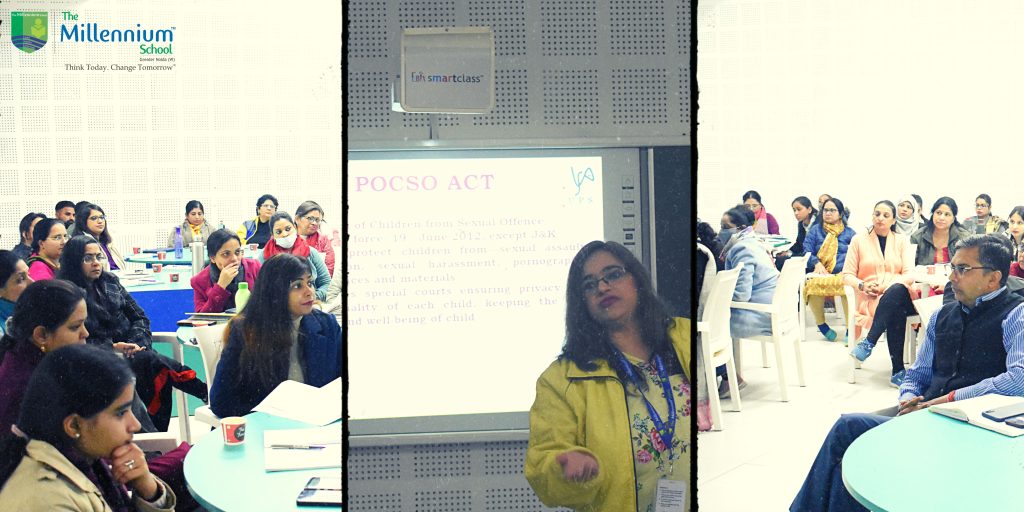
The Millennium School, as one of the top schools in Greater Noida West, understands the concern of parents around child safety. Realising the importance of creating a safe and secure learning environment for students outside of their homes, the school helped organise a workshop on the “POCSO Act” (Protection of Children from Sexual Offenses) on the fourth day. It was led by Ms. Gagandeep Kaur (a child and clinical psychologist and director at Unique Psychological Services).
The primary goal of this session was to familiarise and strengthen educators with the various acts and laws listed under the POCSO, as well as to implement preventive measures to prevent sexual offences against children at school. The emphasis was on making children aware of sexuality and encouraging students and educators to stand up against harassment or exploitation of children.
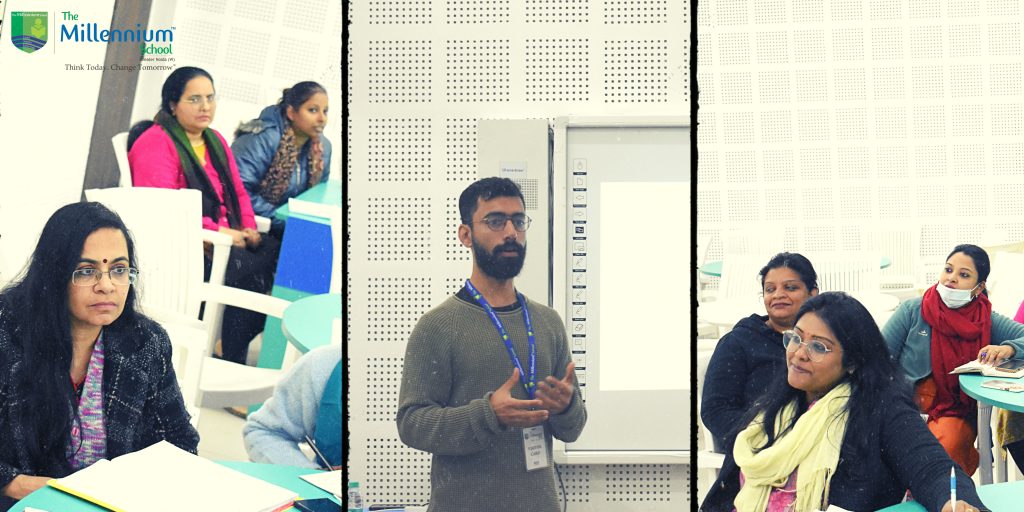
Another workshop on “Questioning Skills” was organised in association with Mr. Aneesh Bangia (co-founder at Opendoor Education).
Mr. Bangia inspired the pursuit of curiosity in the classroom. He talked about how powerful questioning can be used as one of the important pedagogical tools to help educators assess students’ knowledge. Giving some examples of incorporating open-ended question-answering in various lessons, he asked the educators to encourage their students to explore and think further.
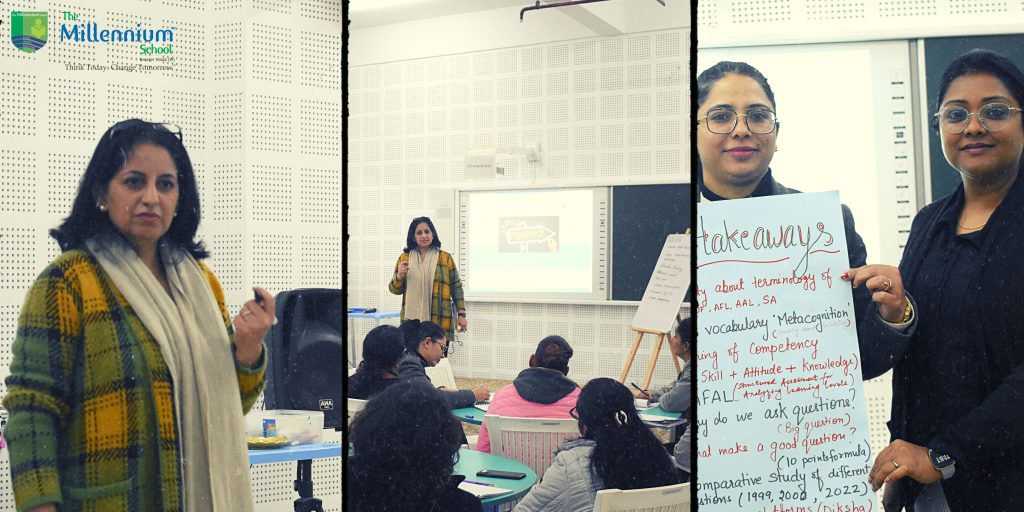
The professional learning week ended with a session for educators of grades III–VIII, led by Dr. Himani Tyagi (principal at The Millennium School, Greater Noida West) and Ms. Ritu Gupta (coordinator-academics &professional development at The Millennium School, Greater Noida West).
Dr. Tyagi talked on “Competency-based Assessments & Questioning Skills.” She highlighted the needs, differences, and importance of summative and formative assessments. Stressing the significance of questioning, she encouraged the teachers to have interactive discussions in the classroom to understand students’ thought processes. Throughout the session, educators refreshed their knowledge of Bloom’s taxonomy. They also learned how to align school assessments with CBSE board examinations to prepare students for their competitive examinations in the future. The key takeaways of the training were summarised by teachers in the form of charts towards the end.
Continuous learning is important because it helps people feel more fulfilled in their lives and careers, and to maintain stronger cognitive functioning. Keeping this in mind, The Millennium School, as one of the top schools in Greater Noida West, will continue to undertake such informative initiatives in the future as well to ensure consistent personal and professional development of educators. We believe that ensuring the growth of educators is surely going to accelerate the academic performance of students too.
Click her to read more about our teacher development initiatives.






